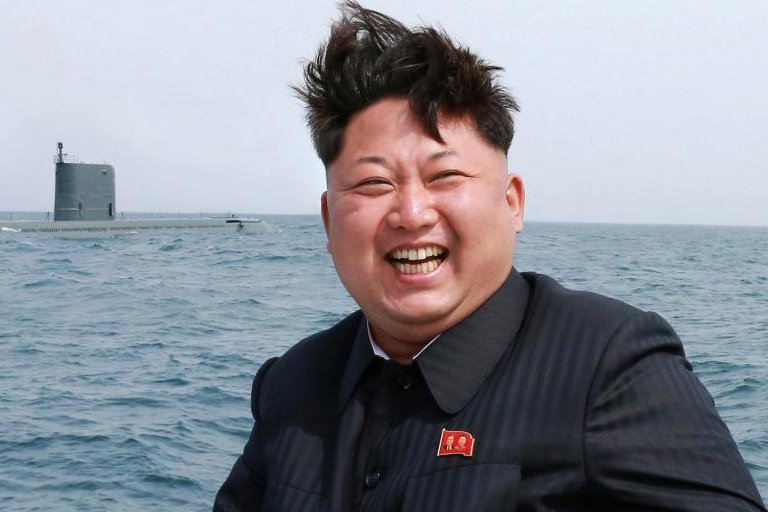Defector: Jang Song Thaek wrecked North Korea's economy
By Elizabeth Shim
In this 2013 photo, a South Korean man watches TV news showing North Korean politician Jang Song Thaek
as he appears before a military tribunal. A defector in the South says North Korea’s internal politics
and economy are misunderstood. File Photo by Jeon Heon-kyun/EPA
SEOUL, UPI -- North Korea's economy is structured so differently from the South's that its capitalist economy would be "unimaginable" to most North Koreans, according to a defector who once claimed membership in the Korean Workers' Party.
The former North Korean citizen, identified only by his surname Kim, served in the North Korean air force before he resettled in the South. He said important features of Pyongyang's planned economy are gravely misunderstood in the South, as are incidents like the execution of Kim Jong Un's uncle-in-law Jang Song Thaek.
"South Korean analysts who study North Korea are bad, because they blame the command economy for the Great Famine," the former North Korean pilot recently said.
The defector said drastic actions from powerful members of the North Korean regime, including Jang, were responsible for the shutdown of North Korean industry when millions starved.
"In South Korea, capital sits at the top of the hierarchy," Kim said. "In North Korea, people are at the center. In South Korea, without capital, you can't do anything. In North Korea, people work for each other."
When North Korea publicly disclosed the execution of Kim Jong Un's uncle-in-law in 2013, the news sent shockwaves around the world.
But according to defector Kim, Jang was a "bad person" who enriched himself during North Korea's notorious 1994-98 Great Famine, when idle machines in factories were torn apart and sold.
Jang was responsible for selling North Korean coal to China, even though the energy source was needed domestically. Coal mining productivity had plunged to one-fifth of pre-famine levels, but Jang exported the resource to China, Kim said.
North Koreans may also have been surprised, but not shocked, when Jang was sentenced to death by his nephew.
Jang, who secretly controlled the levers of power in the North for decades, ordered the rounding up of citizens with spinal disorders that cause dwarfism, Kim said.
The victims were sent to concentration camps because Jang believed their presence in society was "bad for socialism."
The men and women were "secretly kidnapped," around the time of the 1976 Korean axe murder incident at the border. Families would find them unexpectedly missing when they returned home. North Korea at the time reeled from the shock of the Jang-led mission to round up the disabled, Kim said.
A 'people-centered' economy
Just as the South's capitalist economy could leave many North Koreans scratching their heads, North Korea's economy may also baffle outsiders.
Profits are the least of economic priorities in North Korea, the defector said, where a pair of shoes that costs 60 cents to produce would be supplied to the population at 3 cents.
"In North Korea that would be jackpot pricing. In a capitalist economy that would be going for broke," Kim said.
The notion of an economy that benefits people also means Kim Jong Un is not the kind of dictator outsiders have assumed him to be.
The North Korean leader's field guidance visits are neither the product of an executive decision nor autocratic whimsy.
"Chairman Kim conducts field guidance according to Party direction," the defector told UPI. "Kim receives [institutional] permission, and then he has a duty to conduct field guidance."
Looking to the future
While South Koreans more familiar with profit-driven economic development learn about North Korea, experts on inter-Korea connectivity are preparing for the future.
Min Kyung-tae, a North Korea specialist at Seoul-based Yeosijae, Future Consensus Institute, told UPI the South Korean government ought to look beyond the manufacturing model of economic development in the long term.
Seoul shut down Kaesong, a jointly operated factory park in North Korea in February 2016, after a former South Korean administration claimed Kaesong proceeds were being used to fund North Korea's weapons programs.
"For the future we need projects involving advanced technology, next-generation industries of the Fourth Industrial Revolution," Min said, referring to the phase of development when robotics, artificial intelligence and self-driving cars enter mainstream society.
Min said North Korea is an ideal place to plan entire cities around emerging technological breakthroughs, because it is relatively undeveloped. The idea is one of several themes he raises in his book about the potential for a Fourth Industrial Revolution in North Korea.
"In North Korea, a new city could be built for self-driving taxis," Min said. "In South Korea if the government designates a city a self-driving taxi zone, drivers would go on strike."
Kim said the Fourth Industrial Revolution, if introduced in North Korea, would not have the same significance it would have in the South, the world's most wired country.
Artificial intelligence and other innovations will not be valued for their disruptive value to society, but rather, how they improve the lives of North Koreans, he said.
"If North and South are to cooperate, they must know each other well," Kim said.
























